They don’t teach you how to build and run a software company in school. You need to find your way through trial and error. Maybe you will get a few words of advice from an investor, but you’re basically on your own…
That’s the traditional wisdom when it comes to running companies. In fact, there are a handful of books out there that provide tremendous wisdom and hard-won lessons. Buy these books or get them from Audible this week. With these ideas, you will be able
1) Zero to One: Notes on Startups, or How to Build the Future by Peter Thiel with Blake Masters
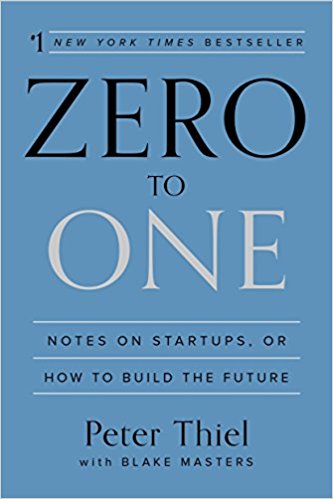
Recommended By: Ran Korber of BreezoMeter and Kenneth Lee of TravelFlan
Thiel has a fascinating reputation in the tech industry. He has achieved significant success as an entrepreneur (e.g., PayPal). He has also earned a well-deserved reputation as an accomplished tech investor. On the other hand, he has used his wealth to destroy opponents like Gawker – a fascinating story told in Ryan Holiday’s book “Conspiracy.” Thiel’s book offers an exciting series of principles behind start-up success including a surprising perspective on the virtues of monopolies.
The Reason You Should Read It
This book will help you to address strategic issues like fitting your product into a broader market. It also gives you a window into Thiel’s unusual thinking about startups. He has run companies and invested in several so his perspective is valuable.
2) The Hard Thing About Hard Things: Building a Business When There Are No Easy Answers by Ben Horowitz
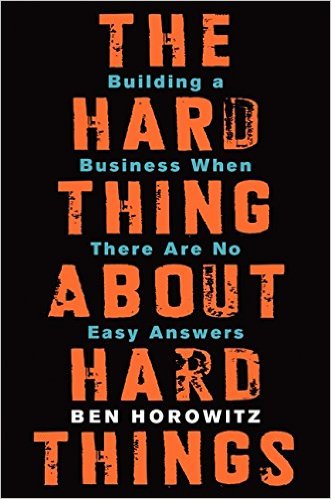
Recommended by: Michael Dougherty of Jelli and Nanxi Liu of ENPLUG
Growing a successful SaaS business requires management skills. Yet, the skills they teach in business school are usually better suited to the Fortune 500 rather than a high growth tech firm. In this 2014 book, you will find Horowitz’s insights on how to manage a growing firm. If you like the direct from the trenches experience, I also recommend “Founders At Work” by Jessica Livingston
The Reason You Should Read It
Horowitz pulls no punches when it comes to the difficult decisions involved in managing a business. If you are going through challenges in your business and feel alone, Horowitz’s book will give you some much-needed perspective to keep going.
3) The Lean Startup: How Today’s Entrepreneurs Use Continuous Innovation to Create Radically Successful Businesses by Eric Ries
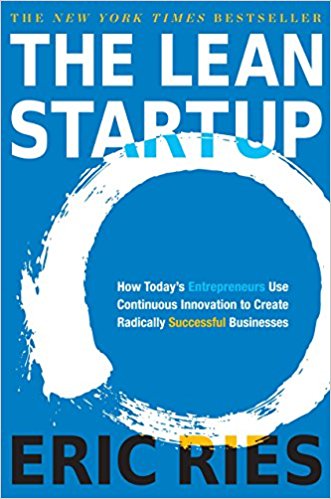
Recommended by: Renat Zubairov of Elastic.io and Alessio of Pipefy
In contrast to “Rework” and “The Hard Thing About Hard Things,” Eric Ries’s book is best suited to the early stage of a business. How do you know if your product idea is right? Should you invest resources further in continuing to develop it or not? You have probably heard of the lean start-up principles like the minimum viable product before. There’s no substitute for going back to the source to understand the principles deeply.
The Reason You Should Read It
If you are planning a new product launch or a new company, you need a process to guide your approach. Lean startup principles will help you to make smart decisions without going broke.
4) Rework by Jason Fried and David Heinemeier Hansson
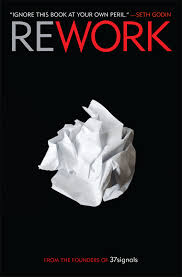
Recommended by: Gijs Nelissen of Prezly and Russell Brunson of ClickFunnels
You have your company off the ground, but the chaos of managing it is getting to you. In that scenario, you need to read “Rework” for new ideas on how to manage your company and staff. Inspired by their success in growing Basecamp, a project management company, “Rework” is full of strong opinions that run counter to established business thinking.
For example, “Rework” questions the value of meetings (“meetings are toxic”) and regularly working long hours. If you are continually logging long hours at the office, you may be disorganized in managing your priorities.
The Reason You Should Read It
It is a first hand perspective on the principles and ideas behind one of the most successful bootstrapped SaaS companies of our time. The book is also visually delightful and easy to read.
5) Crossing the Chasm: Marketing and Selling Disruptive Products to Mainstream Customers by Geoffrey A. Moore
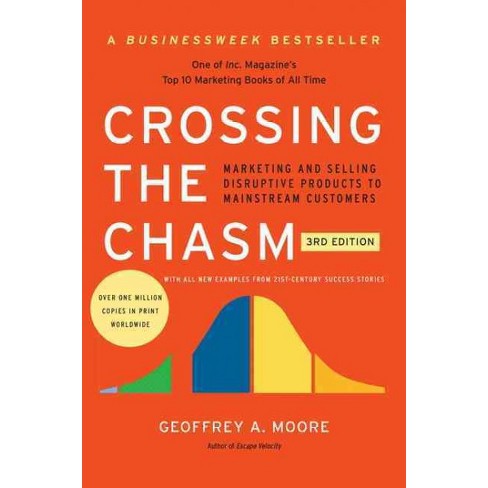
Recommended by: David Dowhan of TruSignal and Adam Robinson of Hireology
Already in its third edition, Moore’s book is a classic in technology marketing. Selling innovative technology has always been difficult because you have to change habits. First published in 1991, Moore’s perspective on technology marketing has stood the test of time. Ever heard of technology adoption concepts like early adopters and the majority? Those ideas can be traced back to Moore’s book. To a degree, Moore’s book is also credited with encouraging niche marketing. Don’t try to market to the whole world – pick a small market and solve their problem.
Just how influential is this book? In July 2018 – Crossing the Chasm – the book has a top 1,000 Amazon Bestseller Rank.
The Reason You Should Read It
If you are the kind of founder who gets excited about technology but wonders how to market your product, this is the book for you.
6) Good to Great: Why Some Companies Make the Leap, and Others Don’t by Jim Collins
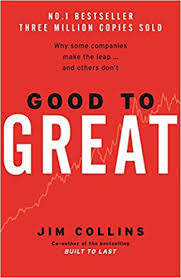
Recommended by: Christopher Day (Demand Jump)
Good to Great is one of the most successful business books on the market for a good reason. Collins carried out exhaustive research to identify the qualities that make companies successful. When I read the book, I found the discussion of leadership particularly compelling. It does have an impact on results.
The Reason You Should Read It
The book is a must-read for two reasons. First, it will bring you into the broader conversation in our business culture. Second, it will give you a fresh perspective on business by exposing you to successful companies outside of the tech industry.
7) Buzzmarketing: Get People to Talk About Your Stuff by Mark Hughes
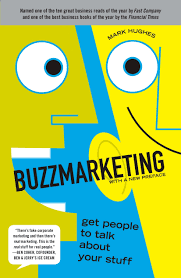
Recommended by: Gil Eyal (Hypr)
You’ve made an excellent product, now what? You need to build a fantastic marketing program. Ideally, you would like to get people talking about your company. “Buzz Marketing” will equip you with ideas on how to get attention and perhaps even go viral. If this approach excites you, I recommend going deeper with another book: Newsjacking: How to Inject your Ideas into a Breaking News Story and Generate Tons of Media Coverage by David Meerman Scott.
The Reason You Should Read It
Give this book to your marketing staff to spark some new ideas. The more you can inspire customers to spread the word about your product, the easier your work will be.
8) Play Bigger: How Pirates, Dreamers, and Innovators Create and Dominate Markets by Al Ramadan, Dave Peterson, Christopher Lochhead, and Kevin Maney
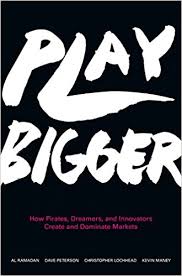
Recommended by Sunil Thomas (CleverTap)
Endorsed by Salesforce.com CEO Marc Benioff, Play Bigger speaks to your inner “Master of the Universe.” If you are finding it tough to stand out in software review sites like Capterra and G2 Crowd, this book may be what you need. The fundamental message: define a new category.
The Reason You Should Read It
Every modern business wants to differentiate itself from the competition. If you genuinely want to be a category of one, this is the book for you. You will learn the art of “category design” so that your product is remembered. It’s one of the best ways to reduce churn and build your brand.
9) Pitch Anything: An Innovative Method for Presenting, Persuading, and Winning the Deal by Oren Klaff
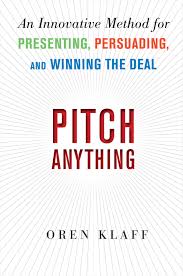
Recommended by Mikita Mikado (PandaDoc)
Whether you want to land another investor or close a major enterprise account, making a good pitch matters. Here’s the good news: you don’t have to be charismatic like Steve Jobs to pitch effectively. You simply need an effective pitch structure. That’s what you will learn in this book.
The Reason You Should Read It
Pitching skills are essential through your SaaS company’s life. “Pitch Anything” is easy to use the template to make pitches to yourself. “Pitch Anything” is especially important if you feel like you can’t quite concisely explain your product and vision.
10) Anything You Want: 40 Lessons for a New Kind of Entrepreneur by Derek Sivers
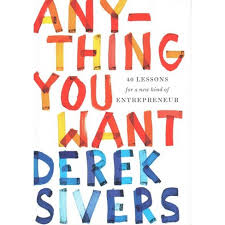
Recommended by: Gavin Zuchlinski (Acuity Scheduling)
This is one of the shortest books on the list, but it is packed with value. Sivers’s story is incredible: he is a self-taught programmer who created one of the world’s first e-commerce successes – CB Baby. It’s an inspiring read that you can get through in an evening. It will prompt you to take a more philosophical perspective on your business.
The Reason You Should Read It
It’s a success story on how to build a multimillion-dollar company from scratch and then sell it. This book will make you think and gives a fresh perspective from the “hustle 24/7” perspective we sometimes see in the entrepreneurial world. Can a philosophical outlook and success go together? Sivers shows it can be done.
11) How to Win Friends & Influence People by Dale Carnegie
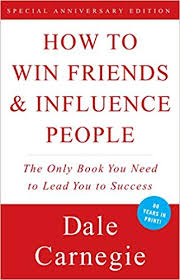
Recommended by: Jared Schrieber (InfoScout)
If a business book has been selling steadily for more than 50 years, you should pay attention. I know business people who re-read the book every year. Simply put, Carnegie’s book tells you how to connect with other people, listen to them and increase your opportunity for influence. As a student of history, I loved the examples from the life of Abraham Lincoln and Theodore Roosevelt.
The Reason You Should Read It
Your technical skills will only take you so far. Whether it comes to hiring and retaining great talent or making sales, “How To Win Friends and Influence People” is useful. I’ve read it in print and by audiobook.
12) The 80/20 Principle, Expanded and Updated: The Secret to Achieving More with Less by Richard Koch
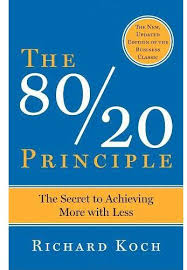
Recommended by: Dave Nevogt (HubStaff)
As a SaaS founder, you have limited time and energy. What are the high leverage areas you should focus on? You can find the answer to that question in “The 80/20 Principle.” Koch explains how to analyze customers, operations and other aspects of business using the 80/20 concept. For a more focused exploration of these principles for sales and marketing, I highly recommend “80/20 Sales and Marketing: The Definitive Guide to Working Less and Making More” by Perry Marshall. Marshall is an expert at per pay click (PPC) advertising and his application of 80/20 is excellent.
The Reason You Should Read It
Once you are out of the scramble to validate your product, you need to focus. The 80/20 principle is one of the best mental models on the market for making better decisions.
13) Predictable Revenue: Turn Your Business Into a Sales Machine with the $100 Million Best Practices of Salesforce.com by Aaron Ross & Marylou Tyler
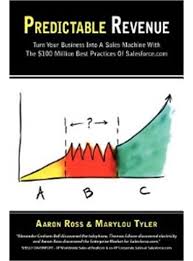
Recommended by: Naveen Gupta (BirdEye)
Written by the sales master who grew Salesforce.com to $100 million, “Predictable Revenue” is one of the most popular tech sales markets on the market. Ross popularized the art of cold email outreach for technology sales. Yes, sending cold email can land your business! I have done it successfully a few times. If you can build a multi-person sales department as Ross suggests (e.g., separate prospecting from closing), this approach can work.
The Reason You Should Read It
Predictable Revenue has had a tremendous impact on the world of tech sales. If you are in the sales automation or marketing automation field, it is a must read. The book is also an excellent resource to hand out to new hires in a SaaS sales team.
Reading Is Not Enough To Hit Your Growth Goals
Reading these books will give you powerful ideas and new perspectives. However, consuming books is not a full solution. I’ve fallen into the trip myself! I’ve loved books for years and have even worked in libraries. However, the ideas and inspiration alone are not enough.
You need tools that you can pick up right now and apply to your business.
Question for the comments: how you have applied what you’ve learned from one of these books?